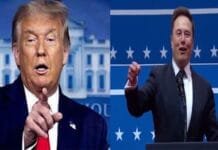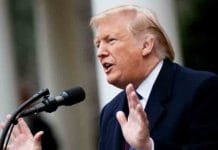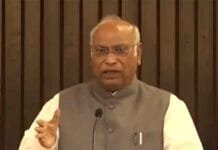Washington – As the countdown to the presidential election in the United States ticks down to less than 15 days, the political atmosphere grows increasingly heated. The clash between the Democratic and Republican parties escalates, with significant implications for the nation. Recently, Democratic candidate Kamala Harris launched a fierce attack on her opponent, Donald Trump, accusing him of harboring dangerous views about military leadership.
Allegations of Authoritarian Desires
Harris emphasized that Trump lacks the necessary temperament to lead the country. “Just yesterday, we learned that Trump’s former Chief of Staff, John Kelly, a retired four-star general, acknowledged that Trump desired generals reminiscent of Adolf Hitler,” she stated. This allegation suggests a disturbing alignment with authoritarian figures, raising questions about Trump’s commitment to democratic values.
Harris further asserted, “Donald Trump made these statements because he does not want a military loyal to the U.S. Constitution. Instead, he seeks a military that is loyal to him personally. He wants a military that will follow his orders, even if that means breaking the law or violating their oath to uphold the Constitution.”
Trump’s Dangerous Rhetoric
In a shocking display of rhetoric, Trump has labeled fellow Americans as “the enemy within.” He even suggested deploying the U.S. military against American citizens. Harris’s remarks come in light of recent statements made by Kelly, who provided insights into Trump’s authoritarian tendencies during an interview with The New York Times.
Kelly described Trump as “extreme right-wing” and characterized him as a “dictatorial” figure who has a penchant for authoritarianism. According to Kelly, “He has openly expressed admiration for dictators, which aligns with the common definition of fascism.” This assertion raises alarms about the implications of such leadership on American democracy.
Concerns About Dictatorial Tendencies
John Kelly’s interview detailed Trump’s alarming attitude toward governance. He pointed out that Trump has never recognized that he is not the most powerful person in the world, interpreting power as the ability to act without accountability. Such an outlook threatens the foundations of American democracy, where power should be balanced and restrained.
Harris’s accusations echo the concerns of many Americans about the potential consequences of Trump’s leadership style. His approach raises serious questions about his respect for the rule of law and democratic principles.
Trump’s Rebuttal
In response to Kelly’s claims, Trump vehemently denied the accusations. He expressed gratitude to Kelly, suggesting that his former Chief of Staff has fabricated a “new story of hatred” against him. Trump labeled Kelly as both “tough” and “foolish,” indicating a deep rift between the two.
Trump’s dismissal of Kelly’s statements showcases his pattern of rejecting criticisms from former allies. This behavior not only undermines his credibility but also raises concerns about his ability to foster a unified government should he be elected again.
The Political Landscape Ahead
As the election approaches, these allegations have intensified the already volatile political environment. Candidates from both parties are ramping up their rhetoric, attempting to sway undecided voters. Harris’s strong stance against Trump is likely to resonate with those wary of his leadership style.
With only days remaining until the election, voters must navigate a landscape filled with contrasting visions for America’s future. The allegations of authoritarian tendencies against Trump will undoubtedly influence public opinion and voter turnout.





















